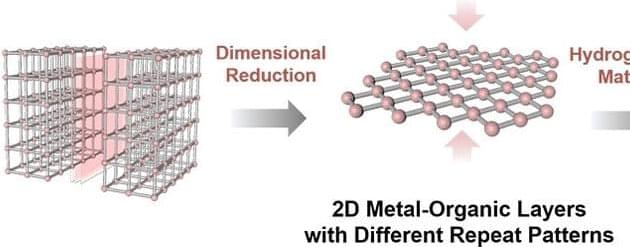Small amounts of nanometer-thin metal-organic layers efficiently protect red blood cells during freezing and thawing, as a team of researchers writing in the journal Angewandte Chemie International Edition has discovered. The nanolayers, made from metal-organic frameworks based on the metal hafnium, prevent ice crystal formation at very low concentrations. This effective novel cryoprotection mode could be used to develop new and more efficient cryoprotectants for the biosciences.
Cryoprotectants prevent ice crystals from forming when samples are frozen. Growing crystals can damage delicate cell membranes and cell components and disrupt cell integrity. Some solvents or polymers make good cryoprotectants; they keep ice crystal formation in check by binding water molecules and disrupting their ordered assembly during ice formation.
Synthetic chemistry has yet more tricks up its sleeve for targeting and influencing ice formation in a more effective way. Metal-organic frameworks (MOFs) are three-dimensional crystalline networks of metal ions linked by organic ligands. These ligands can be tailored to bind small molecules such as water, allowing the assembly of the water molecules into ice crystals to be very precisely tuned.
